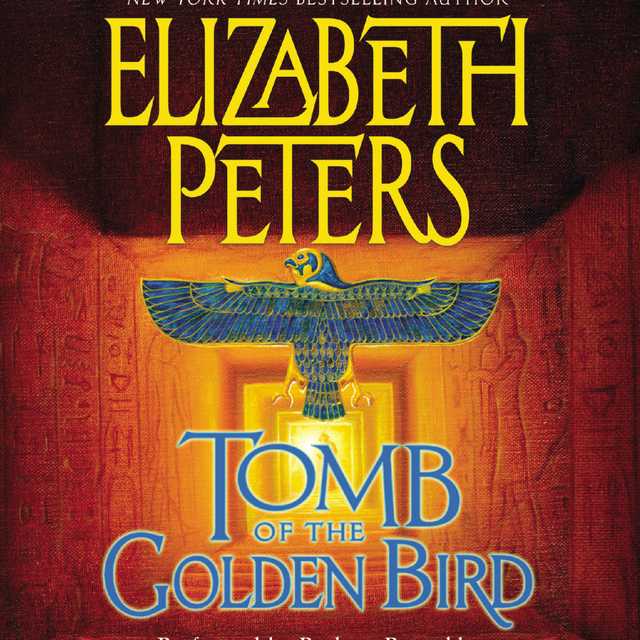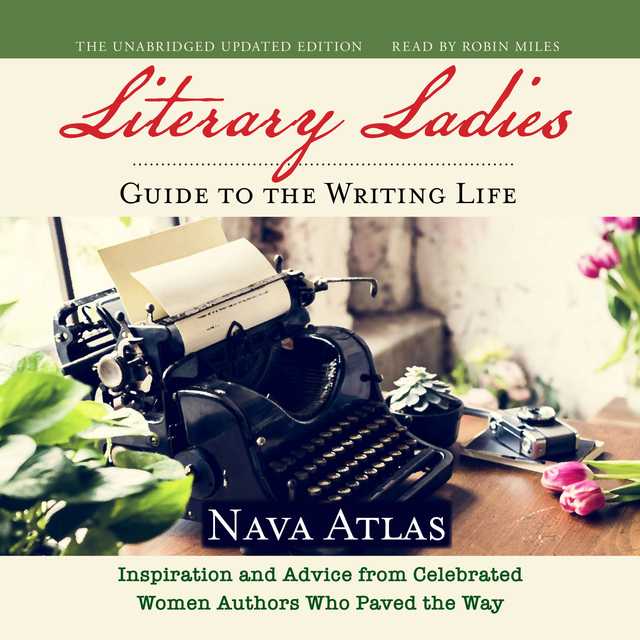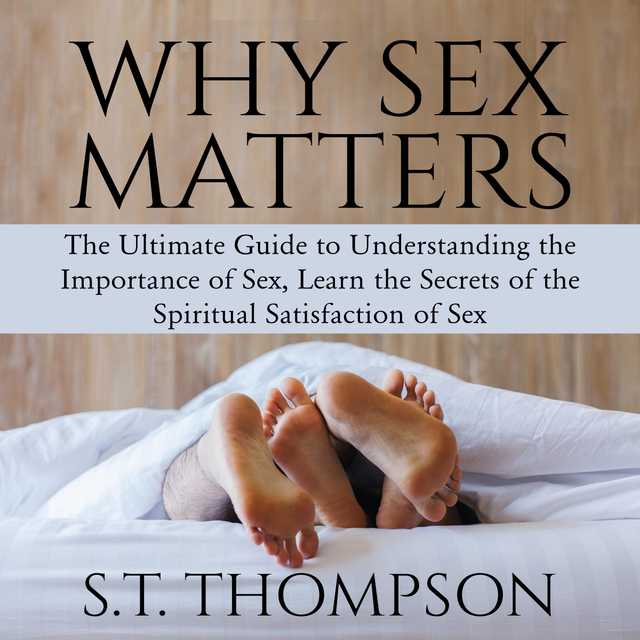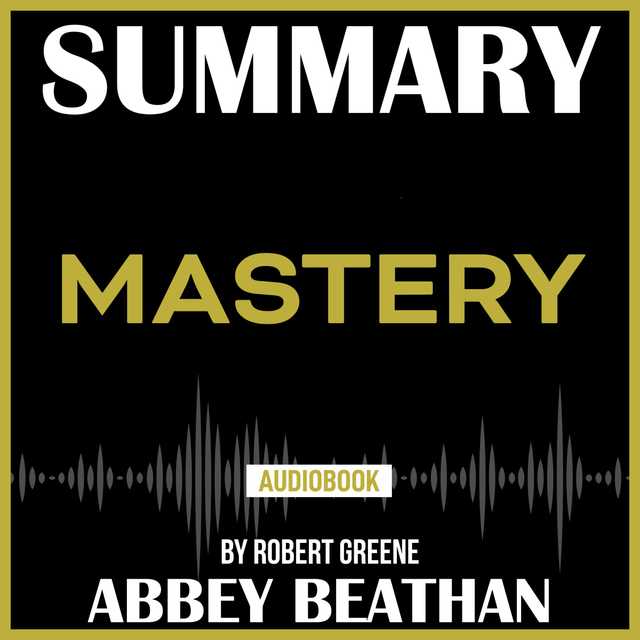Tomb of the Golden Bird Audiobook Summary
In New York Times bestselling author Elizabeth Peters’s eagerly anticipated Amelia Peabody adventure, the Emerson clan is a hairsbreadth away from unearthing the legendary site they’ve been searching for. But a sinister plot and a dark family secret stand in the way of their ultimate ambition — and threaten to change things forever. . . .
Convinced that the tomb of the little-known king Tutankhamon lies somewhere in the Valley of the Kings, Egyptologist Radcliffe Emerson and his wife, Amelia Peabody, seem to have hit a wall. Emerson has tried desperately to persuade Lord Carnarvon and Howard Carter to relinquish their digging rights. But Emerson’s trickery has backfired, and his insistent interest in the site has made his rivals all the more determined to keep the Emerson clan away.
The family returns to Luxor and watches from the sidelines as Carter and Carnarvon “discover” King Tut’s tomb. But before their own excavation can get underway, Emerson and his son, Ramses, find themselves lured into a trap by a strange group of villains demanding “Where is he?” The Emersons embark on a quest to uncover who “he” is and why “he” must be found, only to discover the answer is uncomfortably close to home. Now Amelia must find a way to protect her family — and perhaps even her would-be nemesis — from the forces that will stop at nothing to succeed in the nefarious plot that threatens the peace of the entire region.
Filled with heart-stopping suspense, and Amelia Peabody’s trademark wit and wisdom, Tomb of the Golden Bird is the latest thrilling installment from the beloved “Grand Dame of historical mystery” (Washington Post).
Other Top Audiobooks
Tomb of the Golden Bird Audiobook Narrator
Barbara Rosenblat is the narrator of Tomb of the Golden Bird audiobook that was written by Elizabeth Peters
Barbara Rosenblat is a multi-award-winning voice actor for audiobooks. On Broadway, she created the role of 'Mrs. Medlock' in 'The Secret Garden'.
About the Author(s) of Tomb of the Golden Bird
Elizabeth Peters is the author of Tomb of the Golden Bird
More From the Same
- Author : Elizabeth Peters
- The Deeds of the Disturber
- Laughter of Dead Kings
- Crocodile on the Sandbank
- Naked Once More
- The Hippopotamus Pool
- Publisher : HarperAudio
- Abraham
- American Gods [TV Tie-In]
- Dead Ringer
- House of Sand and Fog
- Prey
Tomb of the Golden Bird Full Details
| Narrator | Barbara Rosenblat |
| Length | 5 hours 56 minutes |
| Author | Elizabeth Peters |
| Publisher | HarperAudio |
| Release date | March 28, 2006 |
| ISBN | 9780060878542 |
Additional info
The publisher of the Tomb of the Golden Bird is HarperAudio. The imprint is HarperAudio. It is supplied by HarperAudio. The ISBN-13 is 9780060878542.
Global Availability
This book is only available in the United States.
Goodreads Reviews
Tracy
September 06, 2013
Elizabeth Peters is back! I love the whole huge family and endless list of characters! This book is meant to be the unfinished and unofficial end to the Amelia Peabody series. Amelia uses one of her famous lists to check off all of the loose plot elements that have been hanging out for several books now. I LOVED it, and especially appreciated all of those little surprises that make it a true Elizabeth Peters success.I’ve been reading these books for so long that I decided it was time to settle some of my long unanswered questions. I skimmed Amelia Peabody’s Egypt and was shocked that fiction and fact were shamelessly combined. So I began my search for the facts. Elizabeth Peters is in fact Barbara Mertz, with a PhD in Egyptology. Elizabeth and Peter are her two children. She has written three nonfiction books using her real name. She has also written under the name Barbara Michaels. In total she’s written over seventy books.Her heroine, Amelia Peabody, is inspired by Victorian amateur Egyptologist Amelia B. Edwards, Lady Hilda Petrie: the wife of British Egyptologist Sir William Flinders Petrie, and is semi-autobiographical, laced with the feminism and feelings of a woman who was a pioneer in her time, receiving a doctorate degree from a prestigious university in a decidedly unfeminine subject in 1952. All three of her inspiring sources were pioneers in their own way, breaking through barriers of sexism and society.Amelia’s husband, Radcliffe Emerson, is inspired by Sir William Flinders Petrie. Sir Petrie’s exacting excavation methods were unprecedented and set the methodology for future archaeologists. The Emersons’ discoveries (when they were actual real discoveries) were in fact discovered by Petrie, Carter, or some of the other real archaeologists who frequent the pages of Peters’ novels.Here’s my research (all done online):http://www.bookbrowse.com/author_inte...An interview with Elizabeth Peters Copyright mpmbooks.com 2004, used with permission. Are any of the main characters in the Amelia Peabody mysteries based on real people?The only main characters which were inspired by real people are Amelia Peabody (based on Victorian amateur Egyptologist Amelia B. Edwards) and Emerson (whose methodology has been attributed to William Flinders Petrie). from: http://surrey-shore.freeservers.com/A...Amelia Peabody Emersonby Suzanne SnyderElizabeth Peters, herself an accomplished Egyptologist with a Ph.D. in the subject from the University of Chicago’s Oriental Institute. Under her real name, Dr. Barbara Mertz, she has written two scholarly books on Egypt and Egyptology: Temples, Tombs, and Hieroglyphs: A Popular History of Ancient Egypt and Red Land, Black Land: Daily Life in Ancient Egypt. As Elizabeth Peters (cobbling together the names of her two children) she conveys her immense knowledge of the subject to us in a witty, easy-to-understand style, mostly through Amelia’s succession of journals In the pages of the Amelia Peabody Mysteries, we also meet real historical persons, such as Gaston Maspero, Sir Evelyn Baring, Howard Carter, and Emil Brugsch, voices of the archaeological community in the late nineteenth century and early twentieth centuries. Amelia gets her name from Amelia B. Edwards, who wrote a Victorian travel book, A Thousand Miles Up the Nile. Amelia Peabody’s nickname, “Sitt Hakim,” or “Lady Doctor,” was the name the Egyptians gave Amelia Edwards’ own traveling companion on their Nile journeys. The Nile sail/houseboat (or dahabiyeh) that both the fictional and real Amelia traveled upon was called the Philae. Amelia Peabody’s character, however, was based more closely on that of Lady Hilda Petrie, the wife of British Egyptologist Sir William Flinders Petrie. According to the Web article “Digging up Clues with Amelia Peabody (Emerson),” by “L.G.,” Hilda Petrie “took off her skirt before being lowered into the interior of a pyramid; further items of clothing were removed as she and her husband explored the inner chambers.” The Emerson brothers’ excavations at Amarna, Elizabeth Peters tells us in an Authors’ Note at the beginning of Crocodile on the Sandbank, were based on those of Hilda Petrie’s husband, Sir William Flinders Petrie. In Elizabeth Peters’ words, “I have taken the liberty of attributing some of his discoveries—and his ‘advanced’ ideas about methodology—to my fictitious archaeologists. The painted pavement found by Petrie was given the treatment I have described by Petrie himself.” (The treatment was covering the pavement with a mixture of tapioca and water, thus preserving the painted plaster.) Emerson is said to physically resemble Petrie in his younger years, being “darkly handsome, black-haired and bearded . . . he shares, as well, the famous Egyptologist’s meticulousness, disregard for comfort, tireless energy, cast-iron stomach and competitive nature, plus his less attractive characteristics—quick temper, stubbornness and dogmatism.” (“Digging Up Clues,” p. 5.) Petrie was called “the Father of Pots,” while Emerson is called “the Father of Curses.” Elizabeth Peters has also written 27 books under another name, Barbara Michaels. These are supernatural thrillers; the only one of which I personally have read is Ammie, Come Home, set in an old house in Georgetown in the Washington, D.C., area. Without gore and violence, these books still manage to make the hair stand up on the back of your neck. As the author herself says, “I scared myself into fits writing Ammie, Come Home . . . I tell you, around 1:30, when the darkness closed in and there was nobody awake, I would jump right out of my socks at the slightest sound” (“The Unofficial Elizabeth Peters/Barbara Michaels/Barbara Mertz Page,” by Monica Sheridan, p. 3.) From Wikipedia http://en.wikipedia.org/wiki/Amelia_P... Character inspirationsMost of the archaeological achievements attributed to the Emerson-Peabodys were, in reality, accomplished by many of the archaeologists who pass through the novels as supporting characters. For example, the excavations that Emerson and Walter are undertaking at Amarna in 1884 (in Crocodile on the Sandbank) are based on those conducted by Sir William Flinders Petrie in 1891. Peters has indicated that the character of Radcliffe Emerson is based in part on Petrie, whose meticulous excavation habits were legendary and set a new standard for archaeological digs.Amelia herself was partly inspired by Amelia Edwards, a Victorian novelist, travel writer, and Egyptologist, whose best-selling 1873 book, A Thousand Miles up the Nile[3] is similar in both tone and content to Amelia Emerson's narration. The character was also semi-autobiographical: pressures on Amelia to marry and abandon her Egyptological career in the first book were based on Peters's own experience in academia.In other instances, fictional accomplishments are ascribed to Amelia and Emerson. For example, the tomb of the 17th Dynasty Queen Tetisheri, whose discovery and excavation form the basis of the plot in The Hippopotamus Pool has, in fact, never been found. Most scholars suggest that the tomb - assuming that it still survives - would be found in the general area where the Emerson-Peabodys discover it. The intact Old Kingdom burial found in The Falcon at the Portal is also fictional; in fact, no intact burials from the Old Kingdom period have ever been found. In a 2003 book talk at the Library of Congress, Elizabeth Peters revealed that her overall plan for the Amelia Peabody series was to continue the series chronologically through World War I and end with events surrounding the discovery of the tomb of Tutankhamun in 1922. This stated goal was accomplished with the publication of Tomb of the Golden Bird in 2006. The events of that book wrapped up most of the series' loose plot lines, although it did not include a definitive ending to the series itself.In the same talk, Peters suggested that any future installments after this point would "fill in the gaps" in the series' chronology, as she has done with Guardian of the Horizon and A River in the Sky which fill part of the four-year gap between The Ape Who Guards the Balance and The Falcon at the Portal.In the final volume of the Vicky Bliss series, The Laughter of Dead Kings, the fictional editor of Amelia Peabody's journals makes a cameo appearance while looking for more of Amelia's journals. By the end of the book, she has acquired at least three more of the "missing journals" to document the adventures of the Peabody-Emersons.While this appeared to suggest Peters's intention to continue the series (which was by far her most commercially successful), only one additional volume was published before her death in 2013. From Wikipedia about Amelia Peabody http://en.wikipedia.org/wiki/Amelia_P...Amelia's ageAmelia's age is initially given as 32 in Crocodile on the Sandbank. In a 1994 article, Elizabeth Peters discussed the obstacle this presented:"If I had intended Crocodile to be the first in a series, I probably wouldn't have been as specific about dates. Not only did Amelia inform the reader of her age (curse her!), but historical events mentioned in the book tied it to a particular year. As the series continued, there was no way I could get around this, or fudge the date of Ramses' birth, or keep him and his parents from aging a year every twelve months."[1]According to this timeline, Amelia would be seventy years old in the eighteenth book, Tomb of the Golden Bird. In The Hippopotamus Pool, however, the Introduction contains what is supposed to be an excerpt from "The National Autobiographical Dictionary (45th edition)", in which Amelia herself states that she was her late twenties at the time of her first visit to Egypt. The statement is footnoted, and the footnote provides specific instructions not to question the discrepancy (pp. xii and xvi.). In Seeing a Large Cat, Emerson's age at the time they married is given as 29.The latest chronological mention of Amelia is in the compendium Amelia Peabody's Egypt: A Compendium, which mentions her taking a souvenir from her visit to Egypt in 1939, as war is looming and she was uncertain that she would ever return. Her age is given as 87, which would be correct according to the original timeline.
Diane
January 24, 2015
This is the first Elizabeth Peters book I have ever read and I liked it. The characters all were well developed and Amelia Peabody was a force of nature. She holds the reigns over everyone but not obnoxiously; she does with a quiet, or maybe not so quiet but strong will. I was a little disappointed that the mystery was not more about the tomb but that being said it was a really good, cozy, mystery. I don't usually read cozy type mysteries but I plan to look into more of this series.
Linniegayl
November 01, 2020
Finished a re-read of this in audio. Although not the last written, it wraps up all of the main characters' stories very nicely.November 1, 2020: Another great re-listen of this, for me, the final book in the series. Until next year when I start all over again.
Jane
July 24, 2021
So that's it, I've read the entire Peabody series in chronological order of the characters' lives. This novel takes us to 1922, which was always Peters' target end date (she wrote fill-in books after this one) as it covers the discovery of the tomb of Tutankhamen.Slightly, anyway. Don't enter this one (as I did; I hadn't read this volume) expecting to find a romp based around Tut's tomb. What fun that could have been; but we got a rather diffuse plot of the usual kind, with a convoluted mystery, Ramses getting into scrapes, Emerson losing his temper, and the antics of a couple of side characters mostly brought back for nostalgia's sake imo. (view spoiler)[The Emersons get largely left out of the Tut expedition for the usual reasons, i.e. Emerson's habit of being rude to everyone. (hide spoiler)] There is one glorious moment when Amelia actually does something brilliant intellectually rather than just, as Emerson has so often remarked, finding the villain by going out alone until somebody shoots at her, but the humor of the earlier books is flagging by now.Most of the tension is created by the Sethos-Margaret relationship, and even that is mostly alluded to rather than seen onstage. Another couple of romances are thrown in for good measure, and then we're done. The Emerson clan is beginning to disperse as the younger generation finally start living their own lives, the Emersons must both be approaching their 70s so I imagine them eventually settling down in Kent and writing their memoirs, and nobody has really emerged from the third generation as an interesting character. All has been written; it was a good series, great in parts, and I enjoyed spending the last two years re-reading it. Goodbye, Amelia and Emerson, and may you continue to delight readers (and fire their enthusiasm for Egypt) for generations to come.
Julia
May 12, 2022
I went to re-read this after reading Lady Almina and the Real Downton Abbey: The Lost Legacy of Highclere Castle about the real Carnarvon family. Lord Carnarvon was a British aristocrat and amateur Egyptologist who sponsored Howard Carter's excavations, leading to the discovery of King Tut's tomb.Tomb of the Golden Bird is part of a series of mysteries whose main characters, the Emerson family, are English archeologists excavating in Egypt. The book combines their fictional story with the actual discovery of the tomb. Lord Carnarvon and his daughter Eve appear briefly and Howard Carter is present throughout.Peters does a good job combining the fictional with the true history.
Toni
June 25, 2009
It was over 20 years ago that I read the first book in the Amelia Peabody Mystery series. This is the 18th in the series, and I've read them all--and wished all of them were longer. What better recommendation can I give?
Kirsty
July 30, 2018
I'm so sad to be at the end of this series. (I mean I have the three books set in seasons we didn't see ) but still - it was an amazing ending. (view spoiler)[I have fun thinking that at least part of Egypt in this world won't know whether to blame the mummy's curse for finishing Carnarvon off or the Father of Curses himself. (hide spoiler)]
Kathleen
July 20, 2018
I didn't have this on the list of books I had read, but I am pretty sure that I read this a couple of years ago. It is a good installment in the series, but definitely not my favorite. I liked the earlier books best.
Cody
January 03, 2020
At last!! A brilliant discovery beneath workmen’s huts in the valley of the kings... an undiscovered royal tomb!!! The ending of this book is beautiful- it feels like a perfect ending to the whole series, frankly. But there appears to still be more...
Eileen
October 17, 2019
Great story about the finding of King Tuts tomb.
Anelie
March 27, 2019
I like this series a lot. This was a particularly interesting convoluted, in the best way, story.
Rhonda
September 13, 2015
I'm in the process of re-reading the entire Amelia Peabody series again, from start to finish in one go. They are still some of my favorite books. They must be read with tongue firmly inserted in cheek. It also helps to have an interest in and some knowledge of Colonial-era exploration narratives, fiction like that of H. Rider Haggard, Orientalist studies, the competitive acquisitive zeal of western museums at the turn of the century, and the "gentlemen archaeologists" of the 19th century who brought more treasure-hunting fever than academic and historical interest to their digs. That is to say nothing of the insight into early seeds and outbreaks of unrest in the Middle East that find their way into the middle and later novels in the series. Add to this impressive list of "ingredients" a dash of early feminism, British upperclass manners, interesting plots, and especially the academically sound Egyptian history from a legitimate scholar (Elizabeth Peters had a PhD in Egyptology from the Oriental Institute at the University of Chicago) and you have the very best in historical fiction, enclosed within adventurous and funny plots led by engaging and memorable characters who, though immensely more enlightened than many of their time, nonetheless remain realistic people OF their time, seeing the world through glasses tinted by their own culture and class. Though they attempt to rise above prejudice, they cannot quite entirely do so. Elizabeth Peters showed immense wisdom of the human condition in this aspect of her characterizations, reminding us all that we cannot even be aware of - much less remove - ALL of our preconceptions through which we see the world around us. Even the best of us - like Amelia - can continually peel back the layers of lenses through which we see the world. All these philosophical, aesthetic, academic, and historical reasons for loving the series are thus topped off with depth of characterization, imaginative storytelling, fast-paced plotting, excellent word-crafting, and an overall affectionate humor about the human condition - the whole coming together even better than the sum of its parts to make it one of my favorite series of all time. I might add that it's a series that I've read and re-read multiple times, something that I almost never do.To be fair, my one criticism about the series is that the non-chronological nature of the last few books gets a big confusing even to me, someone who's read them multiple times. They're still very enjoyable, but holding the timeline and chronology of events in my head is not always easy. I plan to tackle the compendium "Amelia Peabody's Egypt" soon to see how that clears things up. Nonetheless, I'm waiting with bated breath for the book Elizabeth Peters was finishing at the time of her death to be published. I think it would be a great tribute to her career to publish it posthumously.I have been really surprised when friends I've recommended the series to haven't been as enthusiastic as I am about Amelia Peabody. I think I can attribute that to the fact that my first go-round of the series was on audiobook and Barbara Rosenblat and Grace Conlin did such a marvelous job of giving the series the proper amount of irony and tongue-in-cheek humor and updated H. Rider Haggard-style adventure, that even today when I read the series I hear it in their voices in my head. If you are having trouble connecting, then, I recommend listening to at least the first several books on audiobook. It wouldn't hurt to do some quick Wikipedia research on Colonialism, Egyptology, Howard Carter, Wallace Budge, Orientalism, H. Rider Haggard, museum-sponsored archaeology of the latre 19th & early 20th centuries (especially the competitiveness between the British Museum & the Metropolitan Museum of Art(, WWI, pre-WWII espionage, dismantling of the Ottoman Empire... anything relating to history of the 19th century to early 20th century. All will add to your enjoyment of the novels as well as your appreciation for how deftly Elizabeth Peters wove history and real people throughout her fiction.
Most Popular Audiobooks
Frequently asked questions
Listening to audiobooks not only easy, it is also very convenient. You can listen to audiobooks on almost every device. From your laptop to your smart phone or even a smart speaker like Apple HomePod or even Alexa. Here’s how you can get started listening to audiobooks.
- 1. Download your favorite audiobook app such as Speechify.
- 2. Sign up for an account.
- 3. Browse the library for the best audiobooks and select the first one for free
- 4. Download the audiobook file to your device
- 5. Open the Speechify audiobook app and select the audiobook you want to listen to.
- 6. Adjust the playback speed and other settings to your preference.
- 7. Press play and enjoy!
While you can listen to the bestsellers on almost any device, and preferences may vary, generally smart phones are offer the most convenience factor. You could be working out, grocery shopping, or even watching your dog in the dog park on a Saturday morning.
However, most audiobook apps work across multiple devices so you can pick up that riveting new Stephen King book you started at the dog park, back on your laptop when you get back home.
Speechify is one of the best apps for audiobooks. The pricing structure is the most competitive in the market and the app is easy to use. It features the best sellers and award winning authors. Listen to your favorite books or discover new ones and listen to real voice actors read to you. Getting started is easy, the first book is free.
Research showcasing the brain health benefits of reading on a regular basis is wide-ranging and undeniable. However, research comparing the benefits of reading vs listening is much more sparse. According to professor of psychology and author Dr. Kristen Willeumier, though, there is good reason to believe that the reading experience provided by audiobooks offers many of the same brain benefits as reading a physical book.
Audiobooks are recordings of books that are read aloud by a professional voice actor. The recordings are typically available for purchase and download in digital formats such as MP3, WMA, or AAC. They can also be streamed from online services like Speechify, Audible, AppleBooks, or Spotify.
You simply download the app onto your smart phone, create your account, and in Speechify, you can choose your first book, from our vast library of best-sellers and classics, to read for free.
Audiobooks, like real books can add up over time. Here’s where you can listen to audiobooks for free. Speechify let’s you read your first best seller for free. Apart from that, we have a vast selection of free audiobooks that you can enjoy. Get the same rich experience no matter if the book was free or not.
It depends. Yes, there are free audiobooks and paid audiobooks. Speechify offers a blend of both!
It varies. The easiest way depends on a few things. The app and service you use, which device, and platform. Speechify is the easiest way to listen to audiobooks. Downloading the app is quick. It is not a large app and does not eat up space on your iPhone or Android device.
Listening to audiobooks on your smart phone, with Speechify, is the easiest way to listen to audiobooks.






























